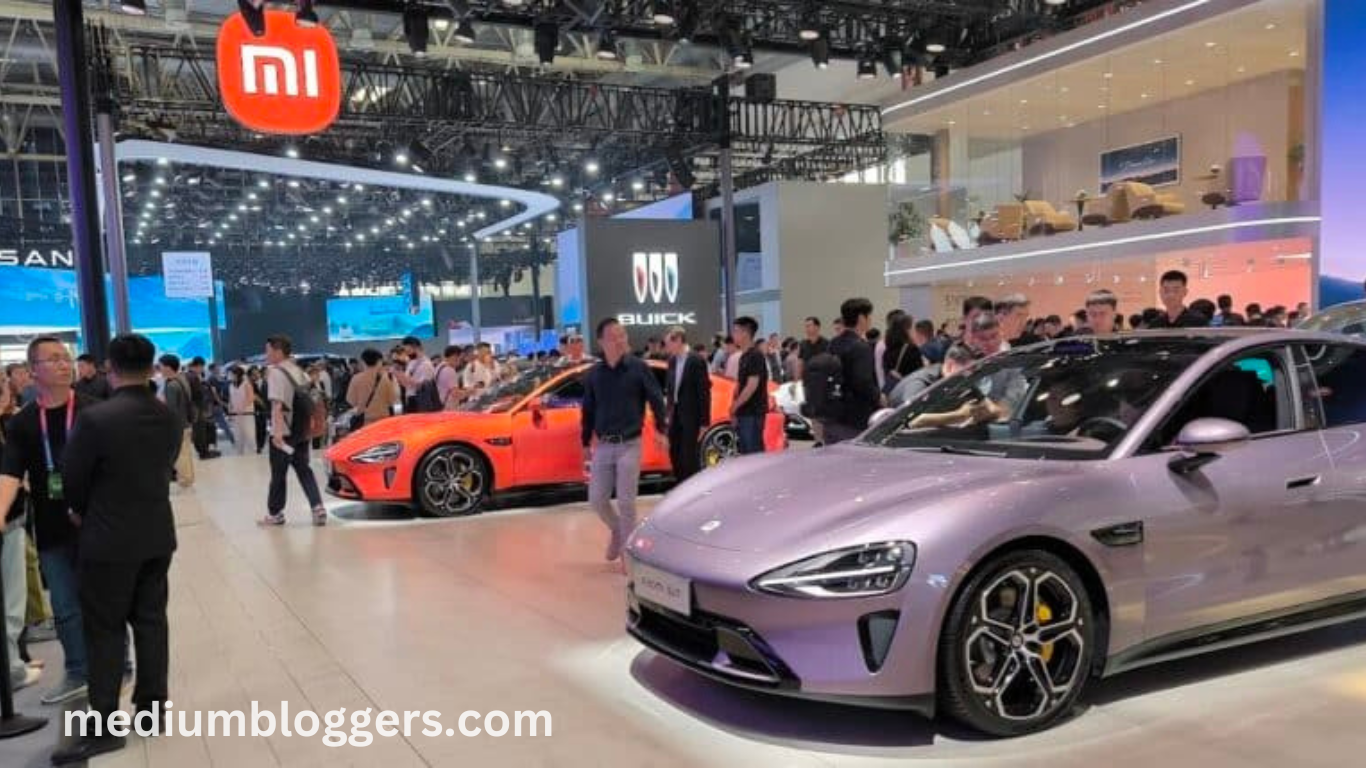Xiaomi, known for its dominance in consumer electronics, has achieved a milestone in the electric vehicle sector by delivering a record number of cars in March. The company’s first EV model, the SU7, has gained significant traction, marking a strong entry into China’s highly competitive electric vehicle industry.
Surging Demand for Xiaomi’s SU7
Xiaomi’s strategy of integrating smart technology into its vehicles has resonated well with consumers. The SU7, positioned as a high-performance yet affordable electric sedan, has been met with overwhelming demand. Early reports indicate that Xiaomi has rapidly ramped up production to meet customer expectations.
Competitive Landscape in China’s EV Industry
China’s EV market is witnessing intense competition, with established players like BYD, Nio, and Tesla vying for dominance. Xiaomi’s entry adds a new dynamic, particularly as it leverages its extensive ecosystem of connected devices and AI-driven technology. Industry analysts suggest that Xiaomi’s brand loyalty and technological expertise provide a unique advantage over traditional automakers.
Challenges and Future Prospects
While Xiaomi’s early success is promising, challenges remain in terms of scaling production, maintaining quality, and competing with entrenched rivals. Battery supply constraints, evolving government policies, and shifting consumer preferences will play a crucial role in determining the long-term success of Xiaomi’s EV venture.
Read More : Microsoft’s Majorana 1 Breakthrough: A CISO’s Roadmap to Post-Quantum Security
The Shifting Power Balance in China’s EV Market
As the market matures, clear winners are emerging. Companies with strong technological innovation, efficient supply chains, and robust financial backing are gaining ground. Xiaomi’s rapid rise suggests that new entrants with the right strategy can disrupt even the most competitive sectors.
What’s Next for Xiaomi’s EV Ambitions?
Xiaomi’s commitment to investing in smart mobility and electric vehicles indicates that this is only the beginning. With plans for further model expansions and deeper integration with its broader tech ecosystem, the company’s impact on the industry is expected to grow. Observers are closely watching how Xiaomi will navigate the challenges ahead and whether it can sustain its record-breaking momentum.
Frequently Asked Questions
What is Xiaomi’s first electric vehicle?
Xiaomi’s first EV is the SU7, a high-performance smart sedan designed to compete in China’s electric vehicle market.
How many cars did Xiaomi deliver in March?
Xiaomi achieved record-breaking EV deliveries in March, though the exact figures continue to be analyzed by industry experts.
What makes Xiaomi’s SU7 unique?
The SU7 integrates Xiaomi’s advanced AI, smart connectivity, and an affordable price point, making it an attractive option for consumers.
How does Xiaomi’s EV compete with Tesla and BYD?
Xiaomi leverages its extensive tech ecosystem, strong brand loyalty, and competitive pricing to challenge established players like Tesla and BYD.
What challenges does Xiaomi face in the EV industry?
Xiaomi must overcome production scalability, supply chain constraints, regulatory hurdles, and fierce competition from established automakers.
Is Xiaomi planning more EV models?
Xiaomi has indicated plans to expand its EV lineup, potentially introducing new models in the coming years.
How does Xiaomi’s entry impact China’s EV market?
Xiaomi’s rapid success adds pressure on existing automakers, reshaping competition in the world’s largest EV market.
What is Xiaomi’s long-term EV strategy?
Xiaomi aims to integrate its smart ecosystem into EVs, enhance AI-driven driving capabilities, and expand its market presence globally.
Conclusion
Xiaomi’s record-breaking EV deliveries in March signal a strong debut in China’s electric vehicle market. With its tech-driven approach and competitive pricing, the company is positioning itself as a formidable player in the industry. However, challenges such as supply chain constraints and market competition remain. As the EV landscape evolves, Xiaomi’s ability to innovate and scale production will determine its long-term success in this fast-growing sector.


